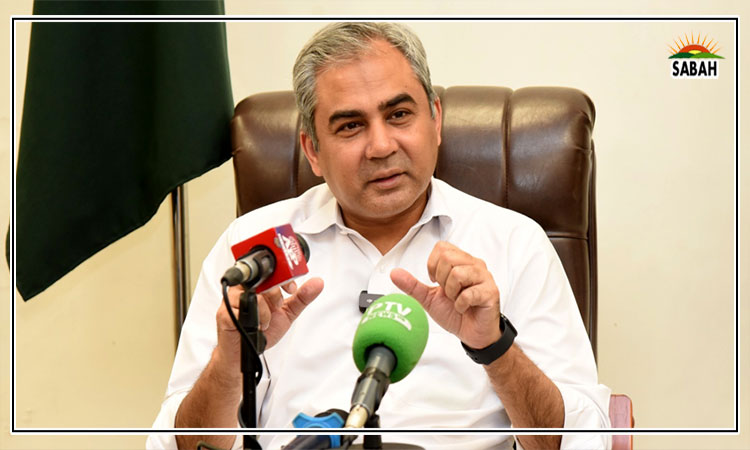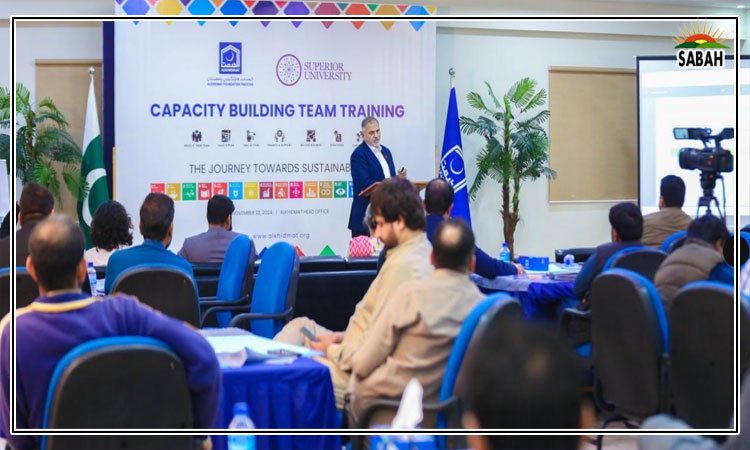In the womb of change…Murk Larik
Amidst the global chorus on climate change, a silent concern echoes: its impact on pregnancy and the health of unborn children. In a country like Pakistan, where the population stands at over 240 million and the growth rate remains one of the highest in the world, this issue takes on a heightened significance. With 18,984 live births per day (791.00 in an hour), the implications of climate change on maternal health and prenatal development become even more pressing. As Earths climate undergoes transformation, its effects on pregnancy have garnered increasing attention. By understanding such complexities and embracing adaptive strategies, policymakers and healthcare providers can navigate this uncharted terrain to safeguard the well-being of expectant mothers and the future generations they nurture.
The Heatwave Pregnancy Paradox: The National Climate Change Policy of Pakistan underscores the severe risks posed by extreme heat to maternal health, culminating in preterm births, low birth weights and maternal heat stress. Dr Farah Saeed, a specialist in rural health, explains, In remote enclaves where medical facilities are scarce, pregnant women face elevated risks during heatwaves, their susceptibility to complications amplified due to dehydration and heat-induced strain. Maternal heat stress carries a spectrum of adverse consequences, elevating the risk of conditions like preeclampsia and gestational diabetes. Also, prolonged exposure to heightened temperatures increases the likelihood of dehydration, triggering premature labour and impeding fetal development.
Implications on Respiratory health: Air pollution in Pakistans major cities, propelled by industrial emissions and vehicular traffic, significantly intensifies respiratory challenges. The Global Burden of Disease Study underscores the gravity of the situation, estimating that outdoor air pollution annually contributes to more than 128,000 premature births in Pakistan. This serves as a stark reminder of the intricate relationship between environmental quality and maternal health outcomes. Dr Asad Shahzad, a distinguished Pakistani environmental health expert, further emphasises the multifaceted impact of air pollution, stating, Air pollution not only compromises maternal health but also casts a shadow on fetal growth and development.
Food and Nutritional Insecurity: The fragility of food security in Pakistan is acutely entwined with the impact of climate change, manifesting through erratic rainfall, flooding and temperature fluctuations that disrupt agriculture. This disruption has far-reaching consequences, extending to maternal health and prenatal development. The FAO underscores this connection, highlighting how climate change threatens maternal and child nutrition in Pakistan, contributing to malnutrition and its associated adverse birth outcomes. In Pakistan malnutrition is a leading factor affecting health of pregnant females along fetus and is one of main cause of high maternal morbidity and mortality. One child out of four is victim of malnutrition.
Mental Health: The far-reaching ramifications of climate change reverberate beyond physical realms, extending their grip on mental health. The Lancet Psychiatry weighs in, revealing that climate-related stressors, combined with existing socioeconomic vulnerabilities, exert a tangible impact on maternal mental health and birth outcomes. In the face of displacement, mass evacuations, loss and uncertainty, pregnant women are disproportionately susceptible to heightened stress levels, echoing ripple effects that transcend generations. In a survey conducted in flood-affected areas of Pakistan, over 40% of pregnant women exhibited symptoms of depression and anxiety.
The multifaceted impact of climate change on pregnancy and unborns demands immediate attention and collaborative action. The countrys demographic landscape, characterised by a burgeoning population and vulnerabilities, heightens the urgency of addressing these challenges. A united effort, involving government authorities, healthcare institutes, policymakers, researchers and other stakeholders, can forge a resilient path forward, ensuring the well-being of both current and future generations amidst a changing climate.
Courtesy The Express Tribune












